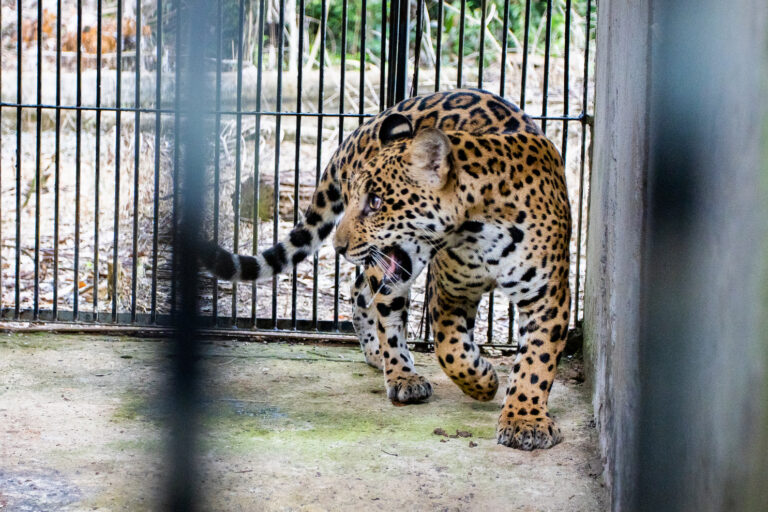The Role of Brazilian Rescue Centers in Wildlife Conservation
Brazilian rescue centers play a crucial role in wildlife conservation efforts in the country, which is home to a diverse array of flora and fauna. These centers serve as essential hubs for rescuing, rehabilitating, and releasing injured or confiscated wild animals back into their natural habitats.
Preserving Biodiversity through Rehabilitation and Education
By providing medical care, nutrition, and rehabilitation services to wildlife, Brazilian rescue centers help protect and preserve the country’s rich biodiversity. Through educational programs and public outreach, these centers raise awareness about the importance of conservation and the threats facing native species.
Fostering Sustainable Practices and Partnerships
Brazilian rescue centers collaborate with local communities, government agencies, and conservation organizations to promote sustainable practices and safeguard natural habitats. By working together, these stakeholders can address environmental challenges and implement effective wildlife protection strategies.
Empowering a Sustainable Future for Wildlife Conservation
Looking ahead, Brazilian rescue centers are poised to play an increasingly vital role in safeguarding Brazil’s unique ecosystems and iconic wildlife species. By embracing innovation, research, and community engagement, these centers can contribute to a sustainable future where humans and wildlife coexist harmoniously.
Challenges Faced in Rehabilitating Trafficked Animals
Rehabilitating trafficked animals presents complex challenges that demand comprehensive solutions and specialized care. The unfortunate reality of wildlife trafficking has severe repercussions on animal welfare and biodiversity. Rescued animals often endure physical and psychological trauma, making their recovery a delicate process.
One significant challenge lies in the behavioral rehabilitation of these animals. Many trafficked individuals have been subjected to unnatural environments and mistreatment, resulting in deep-seated fear and aggression. Addressing these behavioral issues requires expert knowledge, patience, and sometimes innovative techniques to rebuild trust and social skills.
Moreover, the health implications of trafficking add another layer of complexity. Animals may arrive malnourished, injured, or carrying diseases, necessitating specialized medical treatment and dietary regimens. Ensuring the physical well-being of these creatures is paramount in their journey towards full recovery and eventual reintegration into the wild.
Infrastructure and resources pose practical challenges in wildlife rehabilitation centers. Proper facilities, trained staff, and funding are essential components in providing adequate care for trafficked animals. Overcoming these logistical hurdles requires collaboration between governments, NGOs, and conservationists to establish and maintain effective rehabilitation programs.
In conclusion, the rehabilitation of trafficked animals is a critical endeavor that demands a holistic approach addressing behavioral, health, and logistical challenges. By recognizing and actively working to mitigate these obstacles, we can strive towards a future where rescued animals have the best possible chance at a second lease on life in their natural habitats.
Success Stories: From Rescue to Freedom
Discover heartwarming success stories of individuals who have triumphed over challenging circumstances and found liberation.
From Struggle to Triumph
Unveil gripping tales of resilience and determination as these courageous individuals navigate adversity to reach a place of independence.
Empowerment through Resilience
Explore how these narratives of restoration inspire hope, showcasing the transformative power of resilience and perseverance.
Supporting the Fight Against Wildlife Trafficking in Brazil
Breaking Down the Headlines
Efforts to combat wildlife trafficking in Brazil have gained momentum as authorities step up enforcement and awareness campaigns. Recent arrests of poachers and traffickers highlight the ongoing battle to protect endangered species from illegal trade.
The Bigger Picture
Wildlife trafficking is a global issue with severe consequences for biodiversity and ecosystems. Brazil, known for its rich biodiversity, plays a crucial role in the preservation of diverse species. Combating this illegal trade is essential to protect the unique flora and fauna found in the country’s forests and natural habitats.
What This Means Going Forward
Increased efforts to support the fight against wildlife trafficking in Brazil will be key in safeguarding the country’s natural heritage. Collaborative initiatives involving government agencies, conservation organizations, and local communities are vital to disrupt the illegal trade networks and preserve vulnerable species. Continued vigilance, stringent law enforcement, and public education are critical to curbing this illicit activity and ensuring a sustainable future for Brazil’s wildlife.
